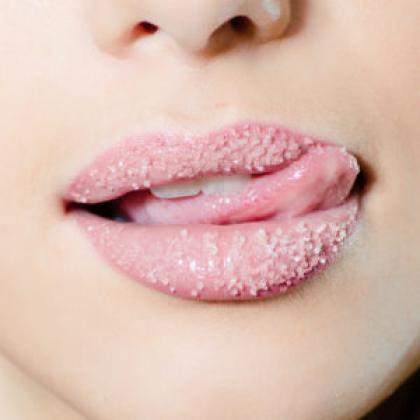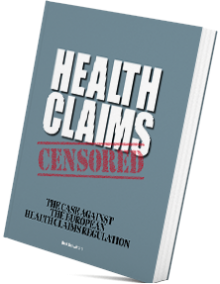Sweetness is overwhelmingly and universally appreciated as a nice aspect of someone’s character. Just think of the lyrics of Nat King Cole’s famous lovesong:
“Stay as sweet as you are,
Don’t let a thing
Ever change you.
Stay as sweet as you are,
Don’t let a soul
Rearrange you.”
And here’s Marvin Gaye’s unforgettable
“… and there you were
With sweet love and devotion
deeply touching my emotion
I want to stop and thank you baby
…
How sweet it is to be loved by you.”
Alas, when it comes to foods, it seems that sweetness has definitely lost is “sweetness.” Like fat, sugar has become a nutritionally and politically incorrect macronutrient. It is undesirable at best and toxic at worst. As long as it is naturally present in foods, sweetness is accepted as a necessary evil. Be it under protest, these foods may “stay as sweet they are.” But, when added to foods, sweetness is now brandished as poisonous, dangerous and, socially speaking, highly incorrect. It may no longer touch our senses and emotions.
Sugar is for dummies.
According to the anti-sweetness elite, it’s all the fault of the food industry, which sweetens products for no other reason than to seduce gullible consumers and make a profit. For some reason, manufacturers of “energy drinks” seem to be particularly at fault in this respect. Recently, the Dutch mass-retailer Albert Heijn, kicked the large-quantity cans of Monster off its shelves. Given the exuberant presence of hundreds – thousands ? – of other foods and beverages containing added sugar on Albert Heijn’s shelves, one wonders how this nutritional correctness could have any measurable result in terms of contributing to AH’s clients’ health. But, politically speaking, it’s very correct. Will the “monster” called “The Real Thing” follow … ?
Placed in a broader perspective, sweetness is a great ax to grind for those of us who hold a grudge against the food industry and industrially processed food. “Added sugar” is now the preferred weapon to attack the food industry. After all, who could possibly disagree with the narrative that “sweetness” is used to seduce people to eat and drink things they wouldn’t purchase if they weren’t sweet. Behind the sweetness of its products, the food industry is hiding its evil, greedy and ruthless character.
More than half a century ago, the American nutritionist Ancel Keys laid the foundation for what eventually became the “war on fat.” His story-line was also quite simple: fat makes you fat. Over time, Keys’ opinions metastasized into the most massive propaganda campaign the world has ever witnessed in the fields of nutrition, health, dietetics, medicine and health-care. Billions were spent (by governments) and gained (by industry) by relentlessly bombarding millions of consumers with the message that fat was the cause of fatness and practically everything else that could go wrong in a human body. Eggs, butter, cheese, red meat, mayonaise, sauces, sausages and all other foods containing or suspected of containing FAT went off the table.
As it turns out, the whole campaign was and is still based on belief and opinion. The scientific evidence, although widely acclaimed by scientists, was and has remained flimsy. But that didn’t matter much. The narrative was great and if you held opposing views, you were ostracized as being in the fold of the food business operators who profited from marketing fat foods. Surely, the scientific evidence was “generally accepted.” But what the scientific and public health communities accepted as “generally accepted scientific evidence” was no more than a wonderful narrative that they propped up by … generally accepting it. [i]
In 1970, the American Heart Association (AHA) knee-jerked by telling Americans to control their fat intake by increasing refined-carbohydrate consumption and choose “snacks from other food groups such as … low-fat cookies, low-fat crackers, … unsalted pretzels, hard candy, gum drops, sugar, syrup, honey, jam, jelly, [and/or] marmalade.” The official pushing of sugar ended only in 1995 and although AHA had been charging a hefty fee for the privilege of putting AHA’s “Heart Healthy” check on sweet food-products up until the year 2012, the blame for adding sugar to foods and promoting sweetness as healthy was placed on the food industry. [ii]
Not unexpectedly, industry’s responses to the dictates of nutritional officialdom were meticulously followed by authorities and directorates for whom all this presented a wonderful opportunity to control, regulate and authorize the relevant nutrition and health claims. In the Annex to the European Nutrition and Health Claims Regulation (NHCR), we find nutrition claims such as:
“LOW FAT – A claim that a food is low in fat, and any claim likely to have the same meaning for the consumer, may only be made where the product contains no more than 3 g of fat per 100 g for solids or 1,5 g of fat per 100 ml for liquids (1,8 g of fat per 100 ml for semi-skimmed milk).”
and
“WITH NO ADDED SUGARS – A claim stating that sugars have not been added to a food, and any claim likely to have the same meaning for the consumer, may only be made where the product does not contain any added mono- or disaccharides or any other food used for its sweetening properties. If sugars are naturally present in the food, the following indication should also appear on the label: ‘CONTAINS NATURALLY OCCURRING SUGARS’.”
Now that the “low fat” and “no fat” claims seem to have lost the relevance they never had, lipophobia is making place for sucrophobia. Surely, the anti-sugar lobby will tell us, “this time it’s different. It may very well be that the anti-fat crusade was a mistake, but with sugar … it’s different. We know it’s different.”
But what if it isn’t. What if the urge to dominate the food industry and minutely control what it must and must not use in manufacturing food products takes precedence over educating consumers to enable them to make healthy dietary choices. What if the urge to control the food industry counter-productively confirms and affirms consumers’ routine dietary behaviour and thereby preempts their making of dietary choices. What if the urge to make choices in the place of the consumer prohibits the making of choices by the consumer. What if making choices for consumers instead of letting consumers do the “choicing,” covertly affirms their disqualification as ignorant dummies, incapable of making the correct choices.
In various Regulations and Directives, the European legislature tells us that “an adequate and varied diet could, under normal circumstances, provide all necessary nutrients for normal development and maintenance of a healthy life in quantities which meet those established and recommended by generally acceptable scientific data.” [ii] [iv] In Recital 1 of the NHCR, the European legislature states: “[…] In order to ensure a high level of protection for consumers and to facilitate their choice, products put on the market, including imported products, should be safe and adequately labelled. A varied and balanced diet is a prerequisite for good health and single products have a relative importance in the context of the total diet.”
Demonizing “single products” containing incorrect nutrients for the purpose of bashing and controlling the food industry and patronizing consumers will make it more difficult – if not impossible – for consumers to follow a balanced and varied diet by making “unfacilitated” dietary choices, i.e. by choosing the macro- and micronutrients required to adequately fulfil their personal dietary needs. Freedom implies making choices and making choices implies judgment. When consumers make the dietary choices, their bodies will eventually judge whether the choices made did or didn’t provide all the necessary nutrients for the normal development and maintenance of a healthy life.
Depriving consumers of the opportunity to make dietary choices by designing and enacting regulations that preempt the making of such choices deprives them of their fundamental freedom of choice to live their lives as they deem fit. Ancel Keys and his followers demonstrated what happens when you try to publicly and legally organize dietary choices “in loco consumentis.” Let’s not make that mistake again by using the force of law to impose abstinence from sweetness.
Bert Schwitters
[i] See The Big Fat Surprise. Nina Teicholz.
[ii] Page 136 of The Big Fat Surprise quoting a 1995 AHA publication.
[iii]Recital 3 in Directive 2002/46.
[iv]Recital 7 in Regulation 1925/2006.




